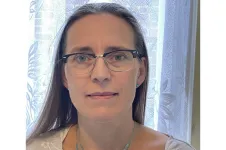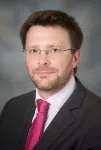A Breakthrough for People and Planet: Effective and Inclusive Global Governance for Today and the Future, produced by the independent High-Level Advisory Board on Effective Multilateralism (HLAB), includes comprehensive and detailed recommendations to strengthen the global architecture for peace, security and finance, deliver just transitions for climate and digitalisation, and ensure more equity and fairness in global decision-making. It also argues that gender equality needs to be at the heart of a reinvigorated multilateral architecture along with recommendations to ensure the multilateral system is more networked, more inclusive and more effective.
Six transformational shifts frame A Breakthrough for People and Planet:
1) Rebuilding trust in multilateralism – through inclusion and accountability;
2) Regaining balance with nature and providing clean energy for all;
3) Ensuring abundant and sustainable finance that delivers for all;
4) Supporting a just digital transition that unlocks the value of data and protects against digital harms;
5) Empowering effective, equitable collective security arrangements; and
6) Managing current and emerging transnational risks.
The HLAB was appointed by UN Secretary-General António Guterres in March 2022 and consists of twelve eminent persons. The board is co-chaired by former President of Liberia, Ellen Johnson Sirleaf and former Prime Minister of Sweden, Stefan Löfven. The recommendations in the report were informed by a global public consultation and build on wide-ranging inputs from diverse stakeholders including UN Member States, civil society, academia, youth, the private sector, as well as input from entities across the UN system.
Speaking on 18 April, on the day of the Report’s launch, President Ellen Johnson Sirleaf commented: “A Breakthrough for People and Planet is the culmination of a year-long engagement with hundreds of networks, organizations and civil society groups committed to addressing global challenges. The solutions they shared will help current and future generations to avoid the catastrophic implications of our current trajectory and secure a more sustainable, just and peaceful world for people and planet. Through this process, I have been inspired by the many ideas and innovations that have been shared with the High-Level Advisory Board on Effective Multilateralism. I am confident that the report provides the framework that the UN, Member States, and others need to strengthen international cooperation for current and future generations.”
Stefan Löfven also commented on the report’s launch: “Multilateralism can work but it must work better and faster. Our people-centered recommendations aim to strengthen international cooperation and support an accelerated implementation of the Sustainable Development Goals and the Paris Agreement. Future generations will judge us by the decisisions we take today.”
Löfven added: “Today’s geo-political tensions must not stand in the way of addressing multiple and growing challenges to our collective security. We need to understand and prepare better for emerging and future risks. We need to build more transparency and trust in international relations. The HLAB report is calling for a renewed effort to reform the UN Security Council, strengthening of the UN peacebuilding architecture and broadening of relations between the UN and regional organizations.”
UN Secretary-General António Guterres tasked the HLAB to advise Member States on issues of key global concern where governance improvements are most needed and to propose options for how those improvements could be achieved. The advisory report A Breakthrough for People and Planet, is the culmination of the Board’s work over the past 12 months. It will inform ongoing deliberations at the United Nations in the lead up to the 2024 Summit of the Future, where Member States will consider ways to lay the foundations for more effective global cooperation.
ENDS
Notes to editors:
CONTACT: Jack Durrell, UN University (durrell@unu.edu)
About the HLAB
The High-Level Advisory Board on Effective Multilateralism (HLAB) was established by the United Nations Secretary-General and builds on Our Common Agenda, his report released in September 2021 that calls for stronger governance of key issues of global concern. The HLAB was asked to build on the ideas in Our Common Agenda and make concrete suggestions for more effective multilateral arrangements across a range of key global issues, ensuring that the interests and needs of women and girls, young people, and future generations were taken into account.
The HLAB is co-chaired by Ellen Johnson Sirleaf, former President of Liberia, and Stefan Löfven, former Prime Minister of Sweden, and is supported by the United Nations University Centre for Policy Research (UNU-CPR). The Board includes: Xu Bu, President of the China Institute of International Studies; Poonam Ghimire, a climate activist and Next Generation Fellow (2021) with the United Nations Foundation; Jayati Ghosh, a Professor at the University of Massachusetts Amherst; Donald Kaberuka, Chairman and Managing Partner of SouthBridge, a Pan-African financial advisory and investment firm; Nanjala Nyabola, a writer and researcher based in Nairobi, Kenya; Tharman Shanmugaratnam, a Senior Minister in the Government of Singapore; Anne-Marie Slaughter, CEO of the New America think tank; Ilona Szabó de Carvalho (Brazil), founder and president of the Igarapé Institute; and Danilo Türk, former President of Slovenia and currently president of Club de Madrid. The United Nations University Centre for Policy Research (UNU-CPR), an independent UN think tank, served as the Secretariat for the High-Level Advisory Board.
The launch of A Breakthrough for People and Planet is the first stage in a sustained engagement with Member States and the UN system ahead of the Summit of the Future in 2024. The report’s recommendations will be presented at global, regional, and sector-specific forums and disseminated via an information campaign strategically targeting key constituencies and stakeholders over the next 18 months.
For more information: www.highleveladvisoryboard.org
To read A Breakthrough for People and Planet: Effective and Inclusive Global Governance for Today and the Future: www.highleveladvisoryboard.org/breakthrough
About the Summit of the Future
Scheduled to take place in September 2024 at the United Nations Headquarters in New York, the Summit of the Future is a once in a generation opportunity to enhance cooperation on critical challenges and address gaps in global governance, reaffirm existing commitments, including to the Sustainable Development Goals and the United Nations Charter, and move towards a reinvigorated multilateral system that is better positioned to positively impact people’s lives. Building on the SDG Summit in 2023, Member States will consider ways to lay the foundation for more effective global cooperation that can deal with today’s challenges as well as new threats in the future. For more information: https://www.un.org/en/common-agenda/summit-of-the-future
END





